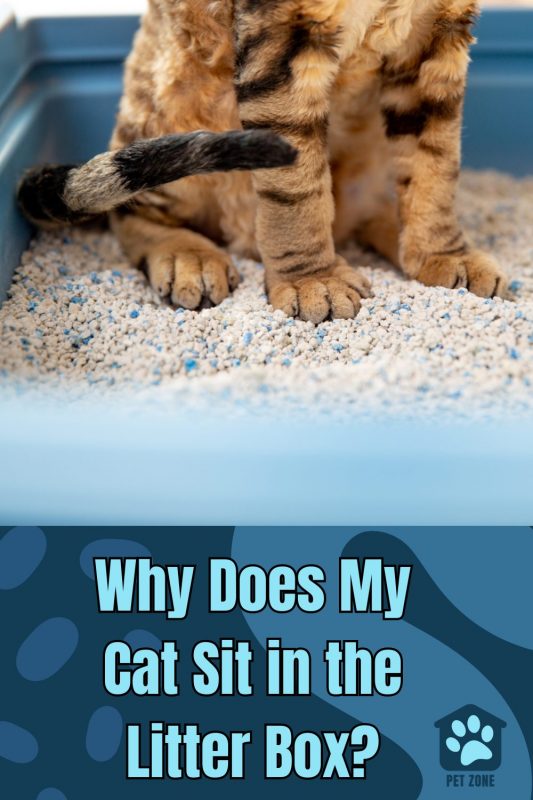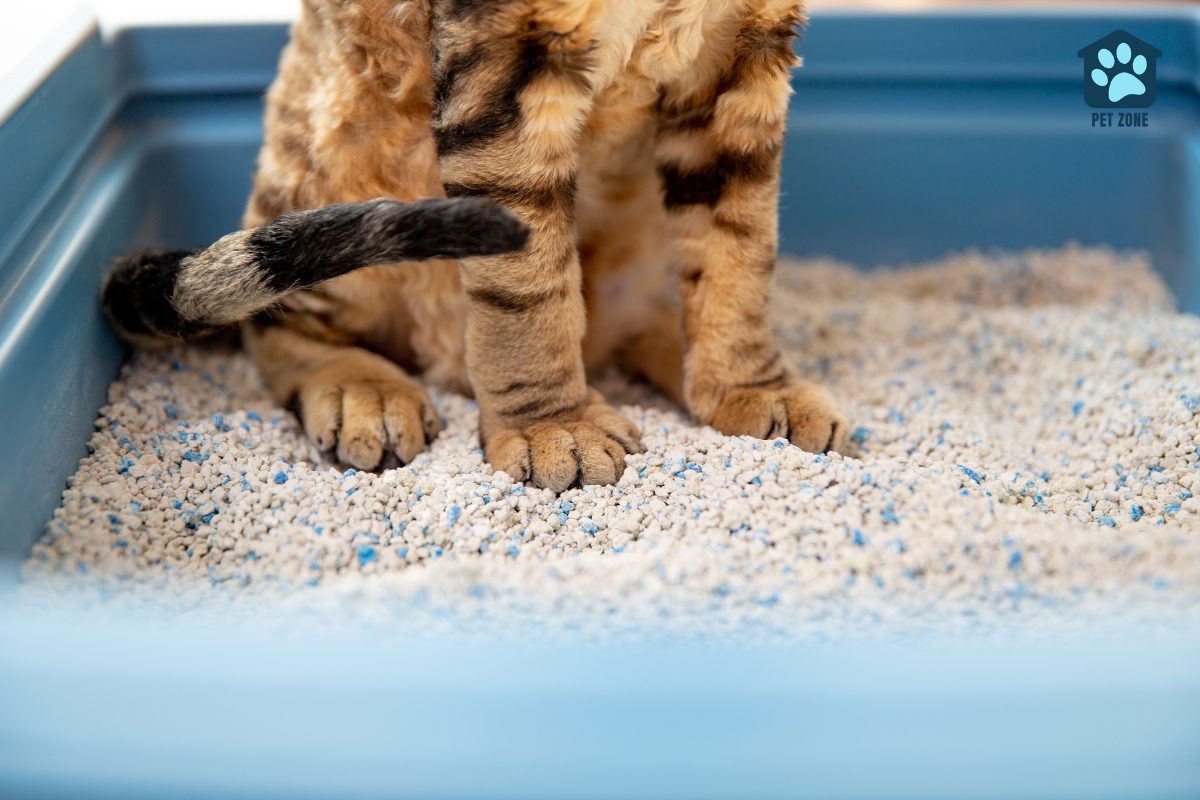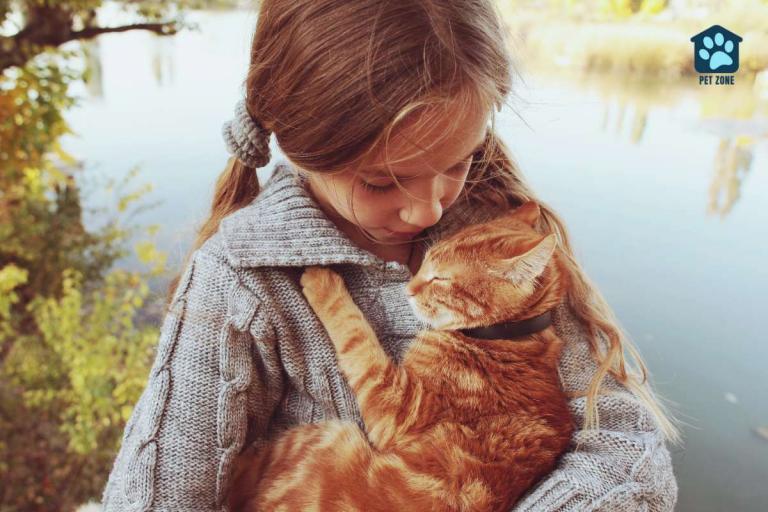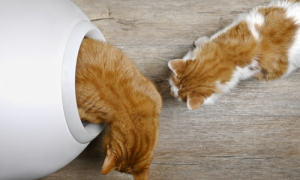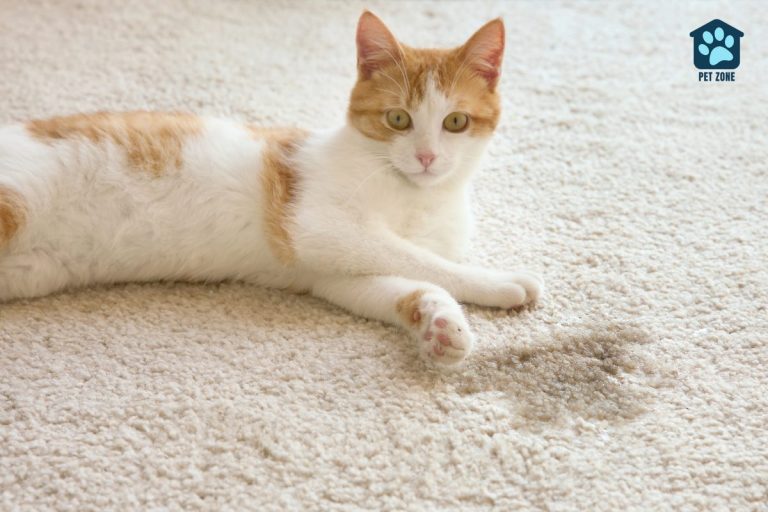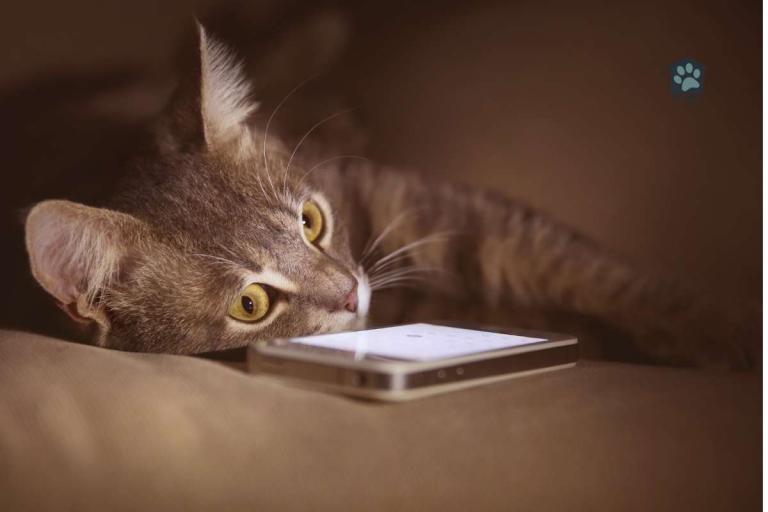Estimated reading time: 11 minutes
Have you ever noticed your cat spending more time than usual in their cat litter box? It’s not just a quirky habit; there could be several reasons behind it. Cats are creatures of comfort and mystery, often leaving us guessing about their peculiar behaviors.
This article dives deep into the whys and hows—unpacking both behavioral and medical explanations for this behavior. We’ll explore everything from safety and security to potential health issues like urinary tract infections or kidney disease.
Plus, we’ll share tips on when to worry and how you can help your feline friend feel better. Ready to decode your cat’s litter box lounging?
Key Takeaways
- Cats may sit in their litter box for safety, marking territory, or because they enjoy the comfort and privacy it provides.
- Spending too much time in the litter could signal health issues like urinary tract infections, kidney disease, diabetes, or constipation that need a vet’s attention.
- Behavior changes can stem from stress or environmental shifts; creating a stable home environment and offering hiding spots helps reduce anxiety.
- Offering alternatives like cozy beds and maintaining cleanliness can discourage cats from lying in their litter boxes.
- Regular check-ups with a veterinarian help catch any medical problems early on, ensuring your cat stays healthy.
Behavioral and Environmental Reasons Why Cats Hang Out in the Litter Box
Safety and Security
Your cat may seek the litter box as a haven. This behavior mimics their wild instincts to find secluded spots for safety.
Your new cat or one sensitive to changes might spend more time in their litter box until they feel secure again. Especially after adoption or during times of environmental change, the confined space offers security.
A litter box may provide a familiar scent and enclosure, comforting your cat in stressful situations. If you notice your cat sitting in their litter more often than usual, consider if there have been recent changes at home that could be affecting them.
Ensuring they have multiple hiding spots can help them feel safer without resorting to the litter box for security.
Privacy and Comfort
Cats love the cozy shape of their litter box—it’s like a personal hideaway. This space offers them privacy and comfort where they can relax away from the hustle and bustle. The enclosed nature of many litter boxes amplifies this feeling, making them feel secure and undisturbed.
Some cats might choose to spend time in the litter box because it feels soft and comfortable under their paws. It’s not just about doing their business; it’s also about finding a spot where they can enjoy some quiet time alone.
Think of it as their way of claiming a private nook in your home—a place where they can retreat whenever they need to recharge or simply enjoy being by themselves.
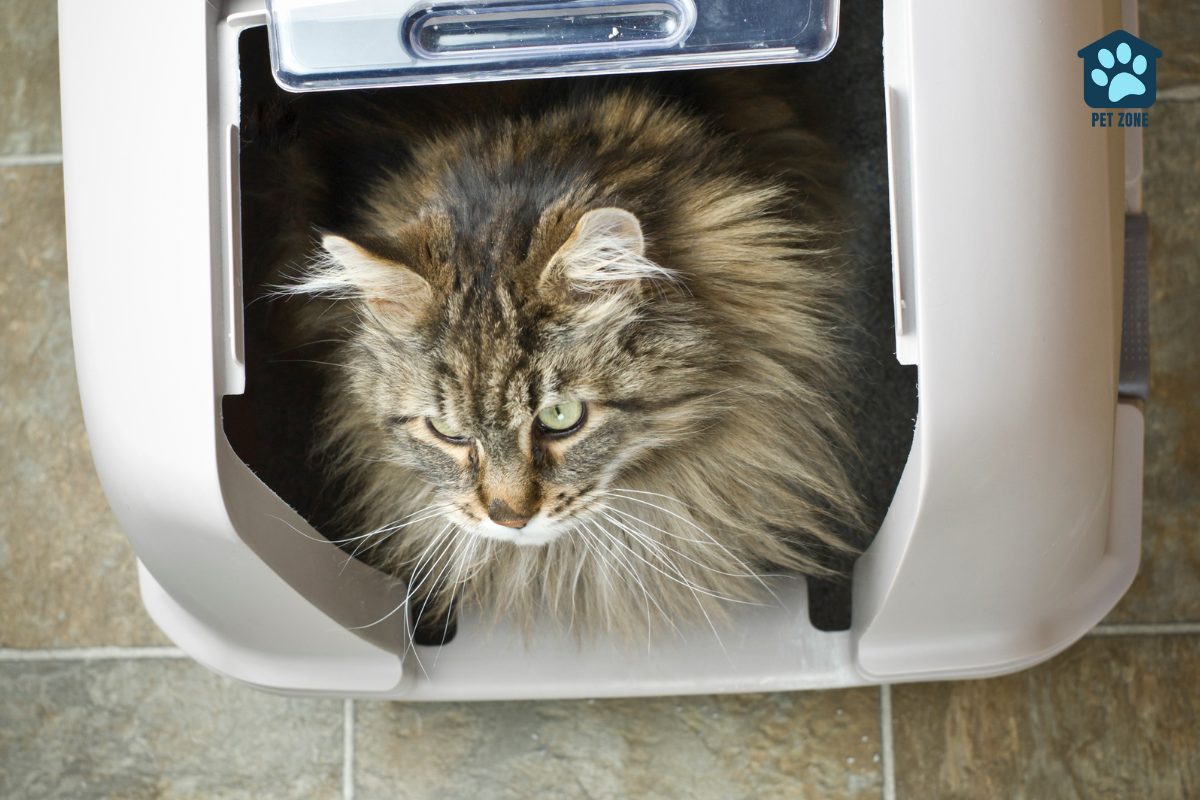
Stress or Anxiety
Stress is a big reason why your cat might sit in their litter box. Your kitty’s stress could come from many sources: changes in daily routines, loud sounds, or unpredictable behavior around them.
Events that seem small to you–a new litter box for instance–can upset your cat, leading to problems with using the box properly. They seek out dark spots like a covered litter box when they feel stressed because these spaces make them feel safe.
To manage this anxiety, it’s crucial to observe any shifts in their environment that could be causing distress. A stable routine helps reduce stress for cats who spend too much time in the litter box due to anxiety issues.
Remember, feline frustration or nervousness often leads to unusual habits such as lying in the litter box longer than usual.
Playfulness
Cats often see their litter box as a play area. They might enjoy games that aren’t available elsewhere in the home.
This means they could be digging or hiding in their litter, demonstrating playful behavior. It’s not just about being naughty; it’s how they express themselves.
In homes with more than one pet, the litter box can turn into a spot for territorial displays, including playfulness. Your cat may choose the litter box for these activities to assert dominance or claim territory among other pets.
Keep an eye on these dynamics, especially if you have multiple cats using one litter box or area for play and rest.
Territorial Behavior
Cats sitting in their litter box often signals more than just comfort—it’s about marking territory. They use scent glands to send a clear message: this space is mine, keep out.
This behavior taps into their wild instincts, where marking territory ensures they keep rivals and threats at bay.
Another reason your cat may spend time in the litter box is caching, a habit seen in their feral counterparts who bury prey for later consumption. It’s a deeply ingrained territorial act, showcasing the complex ways cats claim and protect what they believe to be theirs.
Through these actions, they let other pets—and sometimes even you—know who rules the roost.
Medical Reasons for Cats Sitting in the Litter Box
Urinary Tract Infections
Urinary tract infections (UTIs), especially in male cats, can lead to them spending a lot of time in their litter box. They might try to pee but only produce a small amount of urine.
This is because UTIs make it hard for them to urinate normally. Cats with these infections often visit the litter box more than usual, showing that something’s not right.
Litter box issues can signal urinary tract problems, including bladder infections or other medical issues. If your cat is sleeping in the litter box or lying there for long periods, it may need help.
It’s essential to watch for these signs and consult a vet if you suspect your cat has a UTI or similar condition.
Kidney Disease
Kidney disease might be why your cat spends a lot of time in the litter box. This condition can lead to kidney stones or blockages, causing your feline friend to enter the box frequently. Often, cats with this illness don’t show obvious signs, making it tough for cat owners to spot.
Inflammation of the urinary tract is another problem linked with kidney issues that may result in litter box troubles. House soiling and marking are behaviors that could point to kidney disease in your pet.
It’s crucial for you as an owner to notice these changes and consider them seriously.
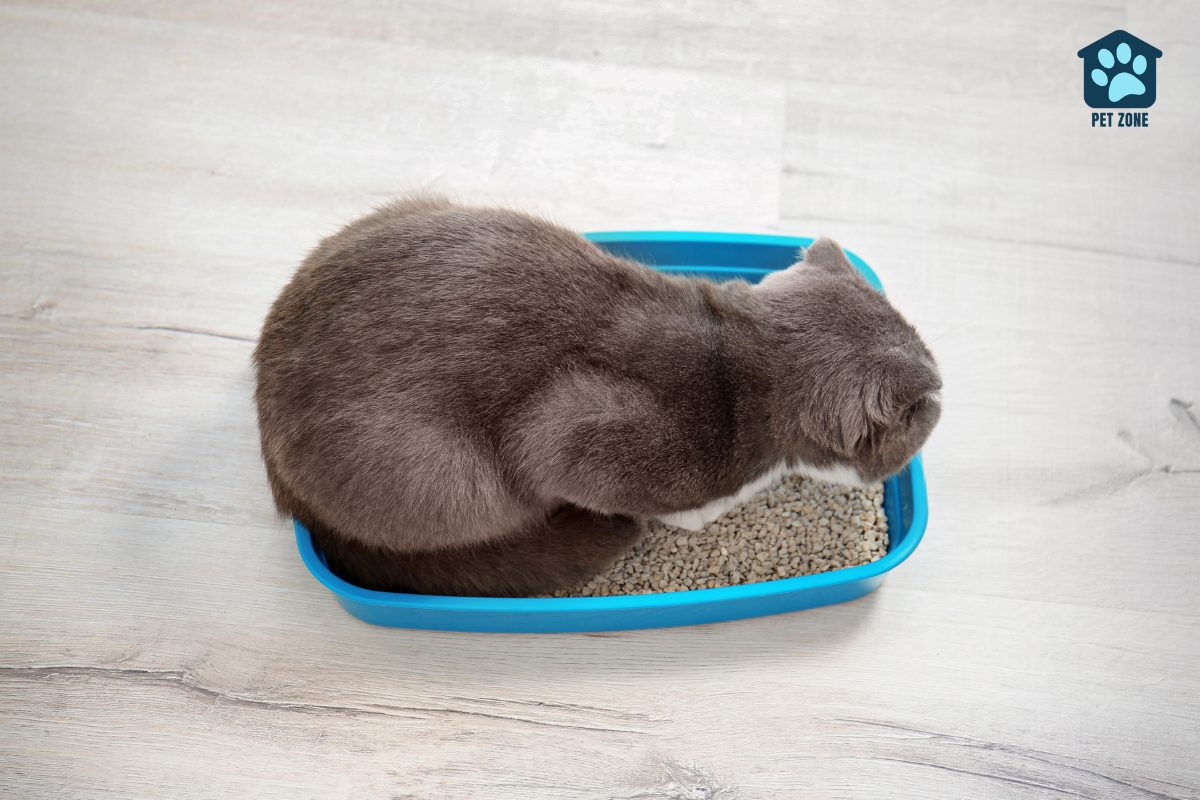
Diabetes
Diabetes in cats is similar to human diabetes – it’s about how they handle sugar. If your cat has diabetes, their body struggles to control blood sugar levels.
This could make them sit in the litter box more often due to frequent urination, a common symptom. Alongside this, you might notice increased thirst or changes in appetite.
Managing your cat’s diabetes involves regular vet visits and possibly insulin injections. A healthy diet plays a key role too. Keep an eye on weight changes; both losing and gaining can signal issues with their condition.
Early detection makes management easier, ensuring your cat leads a comfortable life despite being diabetic.
Hyperthyroidism
Hyperthyroidism hits middle-aged to older cats, affecting both males and females equally. This condition pumps too much thyroid hormone into their system, causing a range of symptoms that might confuse cat owners.
Watch out if your older cat starts eating more yet loses weight, shows high energy levels, or has changes in behavior. These could be signs.
Radioiodine therapy stands as a solid treatment path for cats with hyperthyroidism but comes with its set of risks. Cat owners should weigh these options carefully.
A clean litter box and regular vet check-ups can make a huge difference in managing this condition and keeping your feline friend comfortable.
Constipation
Constipation in cats can make them view the litter box as a place of discomfort. They might sit or lay in their litter box because they feel unable to pass stool normally.
This struggle can lead them to avoid using the litter box for urination, opting instead to go nearby. Cat owners must recognize these signs early on.
Changes in how often your cat uses the litter box—or if they show signs of pain while trying—can signal constipation. Observe their behavior closely. A noticeable decrease in bowel movements calls for a vet visit.
Early detection and treatment are key to helping your cat find relief and preventing further complications like blockages or discomfort from conditions such as osteoarthritis.
Diarrhea
Diarrhea in cats can make them spend a lot of time in their litter box. This condition means they have loose or unformed stools that come out more often than usual.
Several things can trigger it, including changes to their diet, food sensitivities, parasites, and bacterial infections. Since diarrhea can lead to dehydration—a serious risk—it’s crucial to keep an eye on your cat if you notice these symptoms.
Cats with diarrhea may need a change in what they eat or even medical care to get better. It’s important because prolonged issues could indicate bigger health problems like kidney disease or diabetes.
Always clean the litter box regularly; this not only helps keep your cat healthy but also comfortable to return there when needed.
When to Worry and How to Help Your Cat
Notice your cat spending too much time in the litter box? It could be a sign of trouble. Cats sitting or laying in their litter might face serious health issues. Watch out for dehydration, difficulty urinating, blood in urine, or crying out—these signal immediate vet attention.
Helping your cat starts with understanding the root cause. For behavioral issues, keeping the litter box clean and providing a stress-free environment are key steps.
Medical problems might require medication or dietary changes prescribed by a vet. Regular veterinary check-ups ensure early detection of potential problems, keeping your cat healthy and happy.
Tips To Discourage Your Cat From Laying In The Litter Box
Cats love comfort and security, but sleeping in their litter box isn’t ideal. Here’s how you can help change this habit.
- Offer a cozy alternative – Set up a comfortable bed or a blanket in a quiet corner. Make it more appealing than the litter box.
- Go big with the litter box – A larger size allows room for both doing their business and lounging without mixing the two.
- Experiment with litter types – Some cats prefer softer textures. Try different litters to see which one your cat likes best.
- Keep it private – Ensure the litter box is in a low-traffic area. Cats value their privacy, especially when going to the bathroom.
- Cleanliness is key – Regularly clean the litter box to avoid odors that might make your cat want to stay inside it.
- Stimulate them – Provide lots of toys and playtime to keep your cat active and less likely to nap in the litter box.
- Seek professional advice – If changing these aspects doesn’t work, consult with a veterinarian for further guidance.
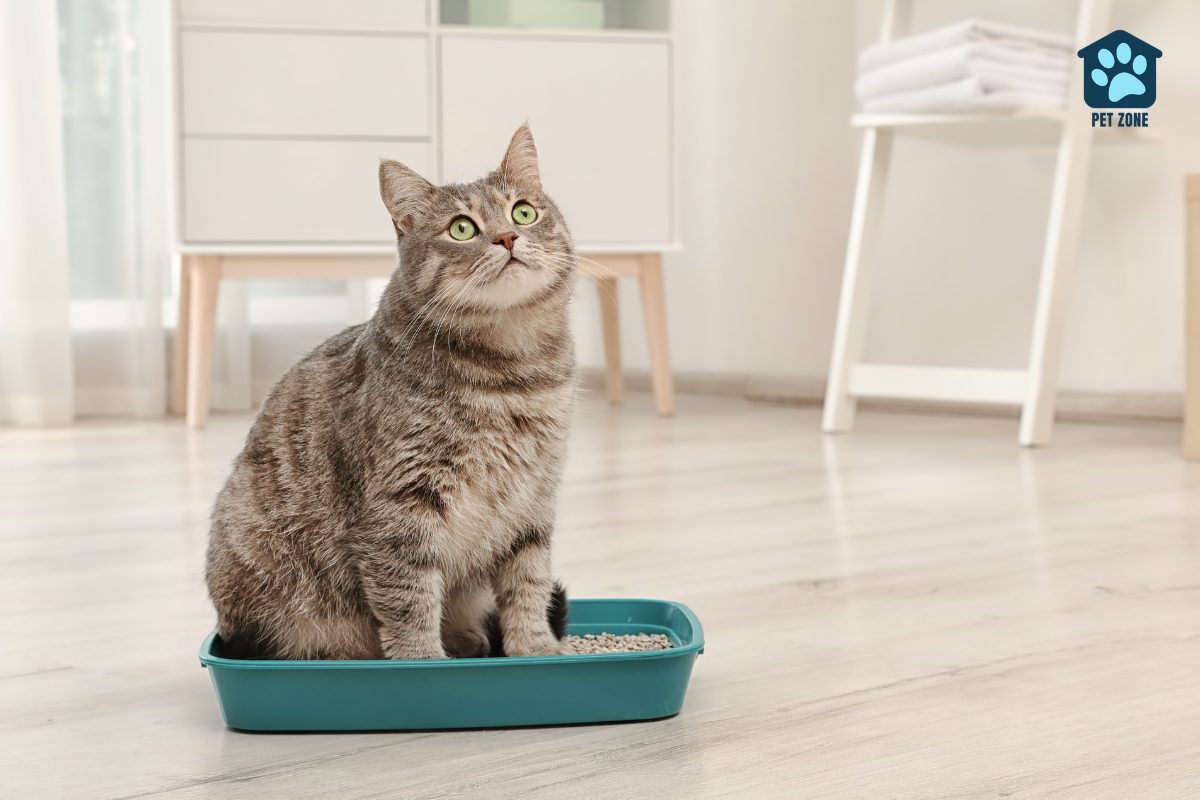
Conclusion
Understanding why your cat chooses the litter box as a hangout spot involves considering both their health and their environment. It could mean they’re seeking comfort, marking territory, or signaling health issues.
Simple observations and quick action can keep them healthy and happy. Remember, each cat has unique reasons; what matters is staying attentive to their needs. Let this knowledge guide you in creating a safer, more comfortable space for your feline friend.
Frequently Asked Questions
Your cat might sit in the litter box for several reasons – comfort, safety, or even health issues. Sometimes, cats find the enclosed space of a litter box comforting; other times, it could be a sign your cat is feeling unwell.
Yes and no. While cats sleeping in their litter box can simply enjoy the softness or enclosure, it’s also a behavior that warrants attention – especially if it’s new. This behavior could indicate stress or health problems.
Cleanliness matters! Make sure to scoop daily and change out the entire litter regularly. Cats despise dirty environments and might start avoiding or remain inside their boxes if they’re not kept clean.
Absolutely! Cats have preferences and may react negatively to new types of litter by either avoiding the box or staying in it longer than usual. If you’ve changed your brand recently, this might be why your furry friend is acting differently.
Definitely – experts suggest having one more box than you have cats (e.g., three boxes for two cats). Competition or territorial feelings can make them linger inside as a claim-making measure.
If your typically active cat suddenly spends hours lounging in their box, heed that red flag! Also, look out for changes like not eating as usual; these behaviors could signal anything from urinary tract infections to serious illnesses requiring immediate vet attention.
As an Amazon Associate I earn from qualifying purchases.
